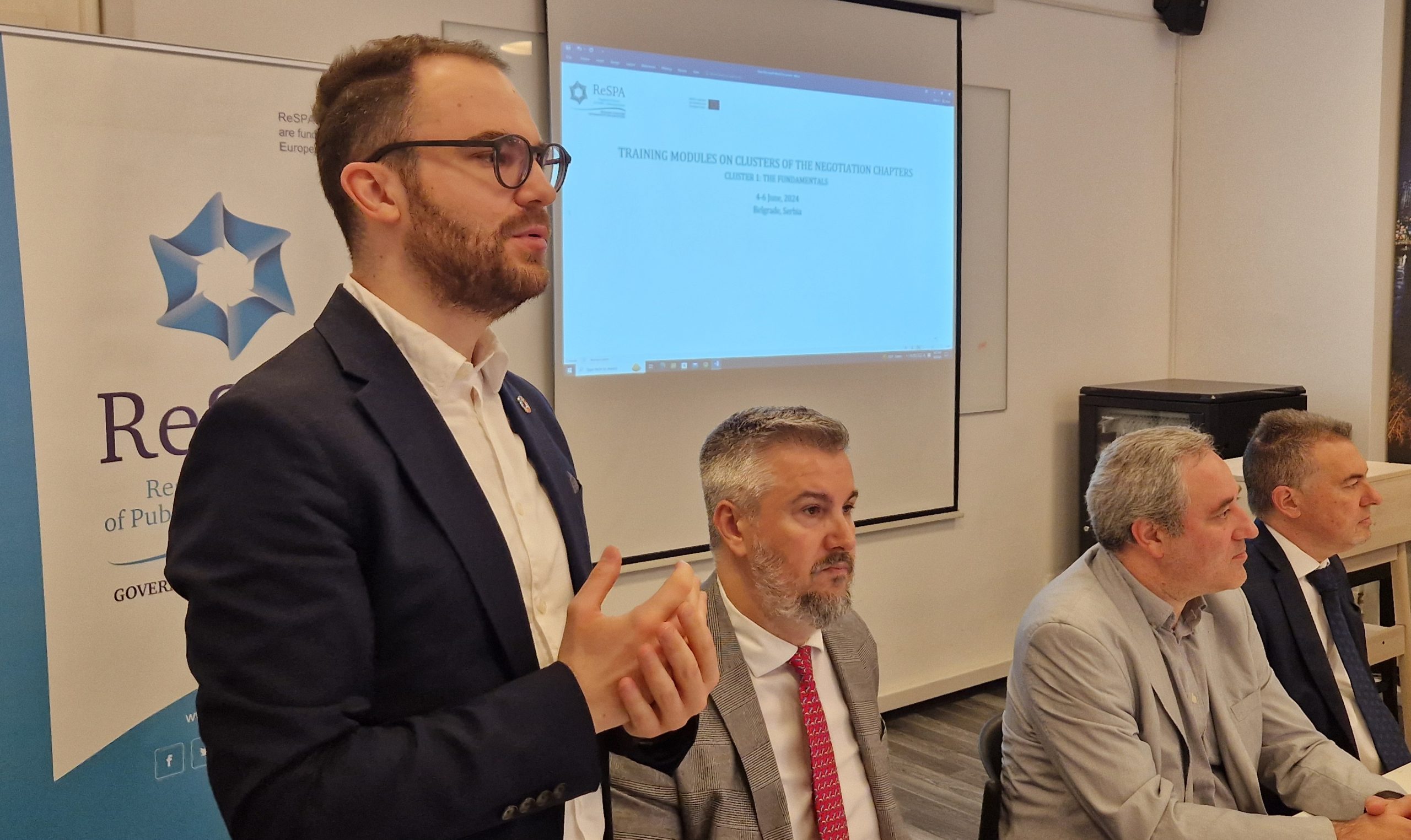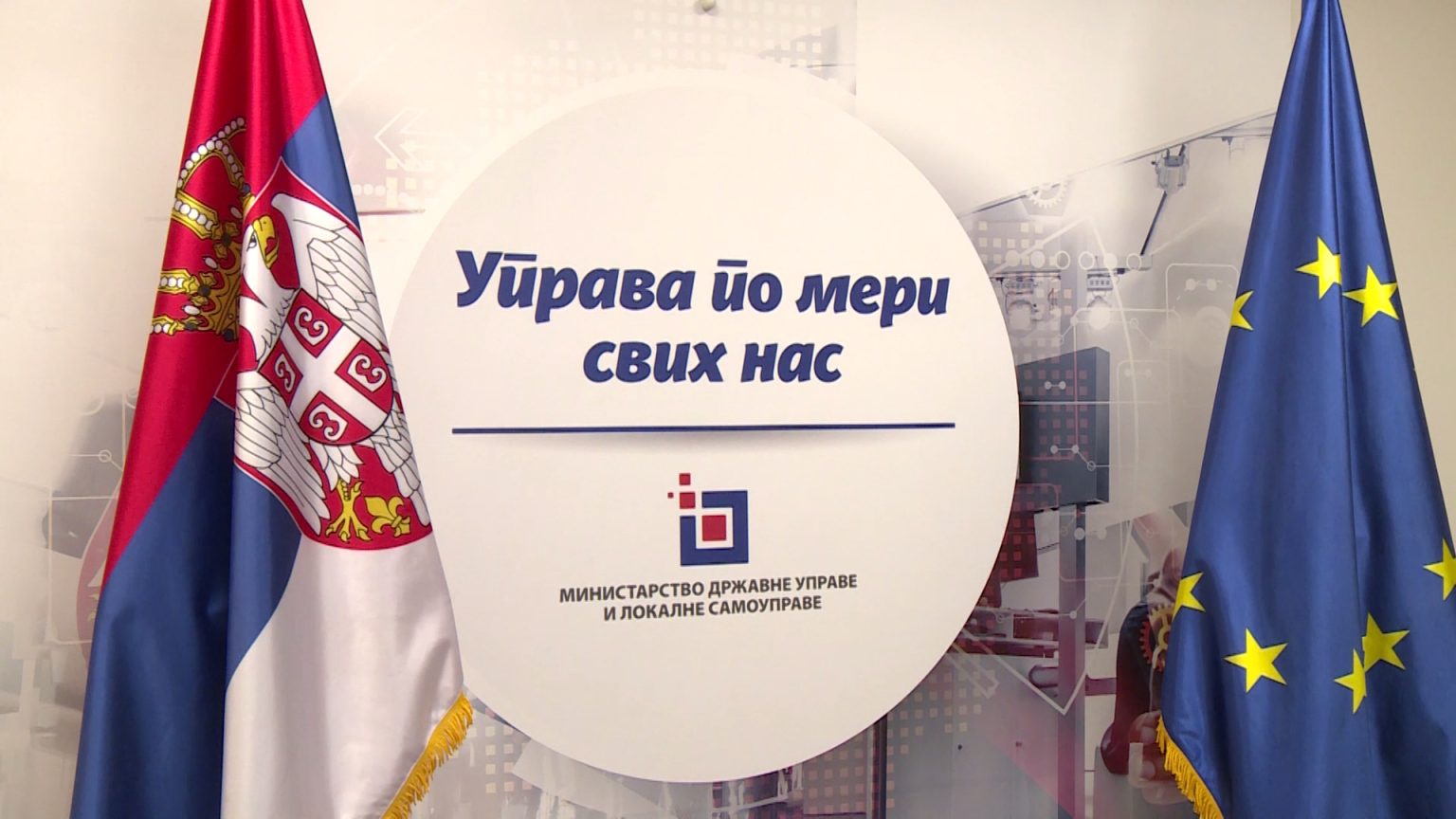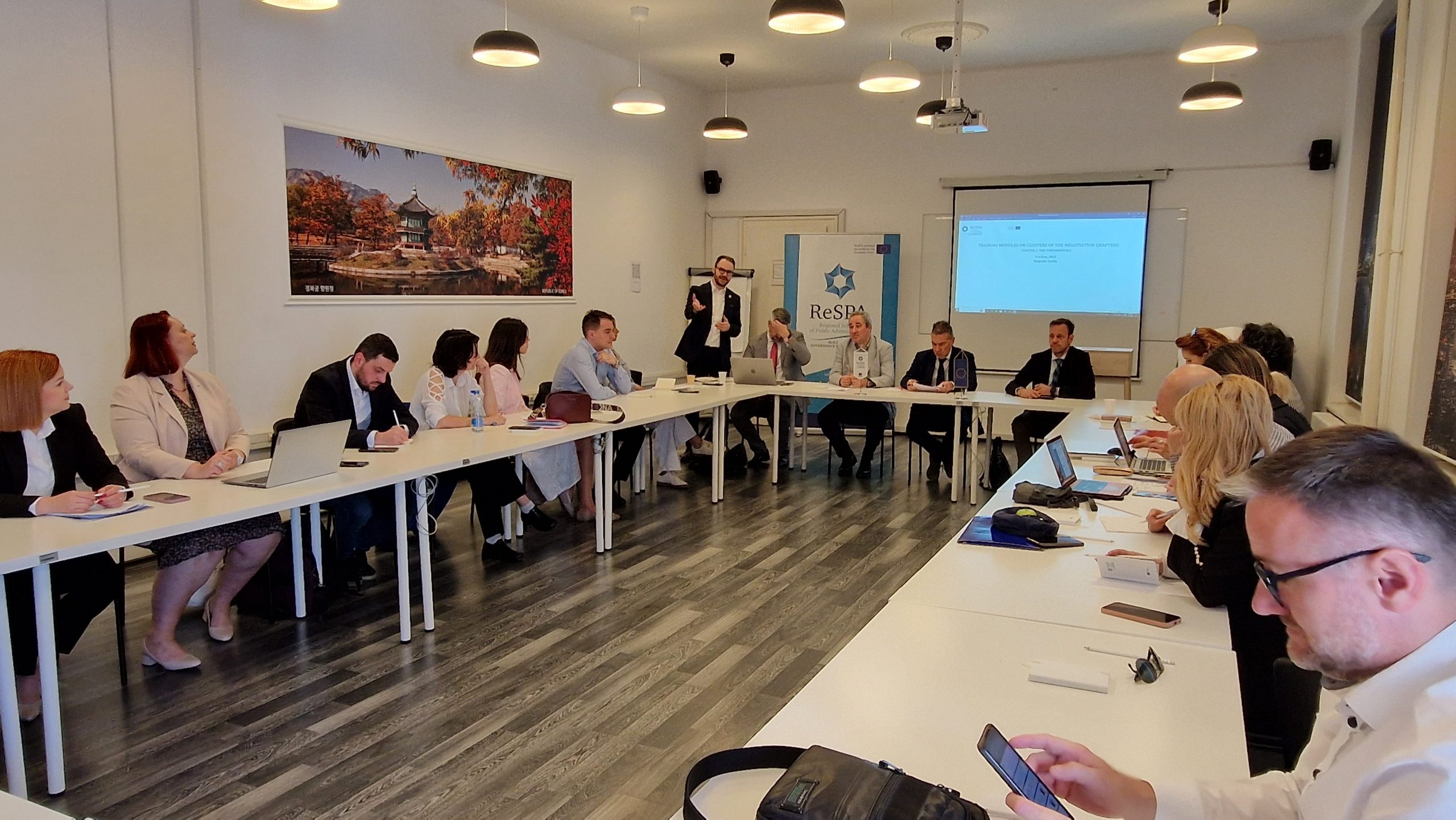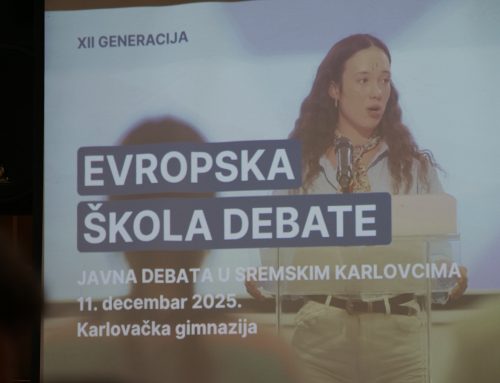Accession negotiations with the European Union are grouped into six clusters, and one of the most important cluster – and the first cluster, titled “Fundamentals”, includes key chapters for the rule of law. The new methodology of accession negotiations requires updating knowledge and acquiring new skills.
The Regional School of Public Administration (ReSPA) launched a three-day capacity building programme and the first one in a series of trainings on clusters of negotiation chapters for 2024-2025, and the trainings were held in Belgrade.
The event brought together 25 civil servants from all over the Western Balkans (involved in the EU accession process), who will improve their knowledge on the latest updates related to Chapter 23 (Judiciary and Fundamental Rights) and Chapter 24 (Justice, Freedom and Security).

Giulio Zanni, Coordinator for Chapter 23 from the EU Delegation in Serbia, emphasised the importance of accession negotiations within Cluster 1 and the progress achieved in these chapters for the overall progress of integration. “The new, strong momentum in the EU enlargement process is very important in the new geopolitical context. A key role is expected from the new Growth Plan in the entire process”, Zanni said.
Branislav Stojanović, Assistant Minister of Justice, reiterated the importance of such multi-modular programmes for overall progress in the process of accession negotiations. “Despite the challenges faced by both sides (the EU and the Western Balkans), the efforts of civil servants in improving the accession process are constantly growing”, Stojanović said.
Genti Xhaxhiu, Programme Coordinator at the ReSPA, stated: “Civil servants need to acquire specific knowledge, constantly improve their skills and remain committed to continuous professional development. By participating in activities essential to their day-to-day work, they help their countries progress towards EU membership.”
Guided by prominent experts Aleksandar Andrija Pejović, PhD, EU integration expert, Simonida Kačarska, PhD, Director of the European Policy Institute Skopje, Miodrag Radović, EU integration expert and Marija Vlajković, Assistant Professor of EU Law, University of Belgrade, participants developed practical problem-solving skills related to negotiating Fundamentals. Through hands-on exercises and discussions, they explored the current state of EU integration, identified key challenges on the path to EU membership, and examined the specific reform agendas and policy areas under Cluster 1.
The European Union has confirmed its unequivocal commitment to the EU membership perspective of the Western Balkans and has called for an accelerated accession process and further advancement of gradual integration. The need for accelerated reforms and economic initiatives expected to benefit the citizens directly and help enhance GDP per capita is the focus of the new Growth Plan.
The foundation of the process still lies in the respective Stabilization and Association Agreements, market integration and alignment with the body of EU law. The prospect of EU membership is an incentive to bring forward and step up with the reforms in the Western Balkans, mostly related to the political and economic governance, the fight against corruption, public administration reform, the rule of law and media freedoms and supported by available financial instruments.

Established as a joint venture of the European Commission and the governments of the Western Balkans, ReSPA has been connecting the ministries and public administration institutions of the region for more than ten years and connects them with the European Commission and experts involved in the public administration reform of the EU Member States. The exchange of knowledge and experiences affects the more efficient formulation of public policies and processes necessary for the successful implementation of reform processes in the public administration in the region.
So far, Serbia has received almost EUR 4 billion in grants from the European funds, of which EUR 215 million were spent solely on public administration reform. Annually, around EUR 200 million are allocated from the pre-accession IPA funds for public finance management and improving the work of local self-governments and independent institutions. Public administration reform is one of the most important elements of Serbia’s EU accession process, and in 2014 it was also put on the forefront of the negotiations. A modern and professional public administration is a key element for every EU member state in order to effectively implement laws and transparently manage funds from the EU funds.




